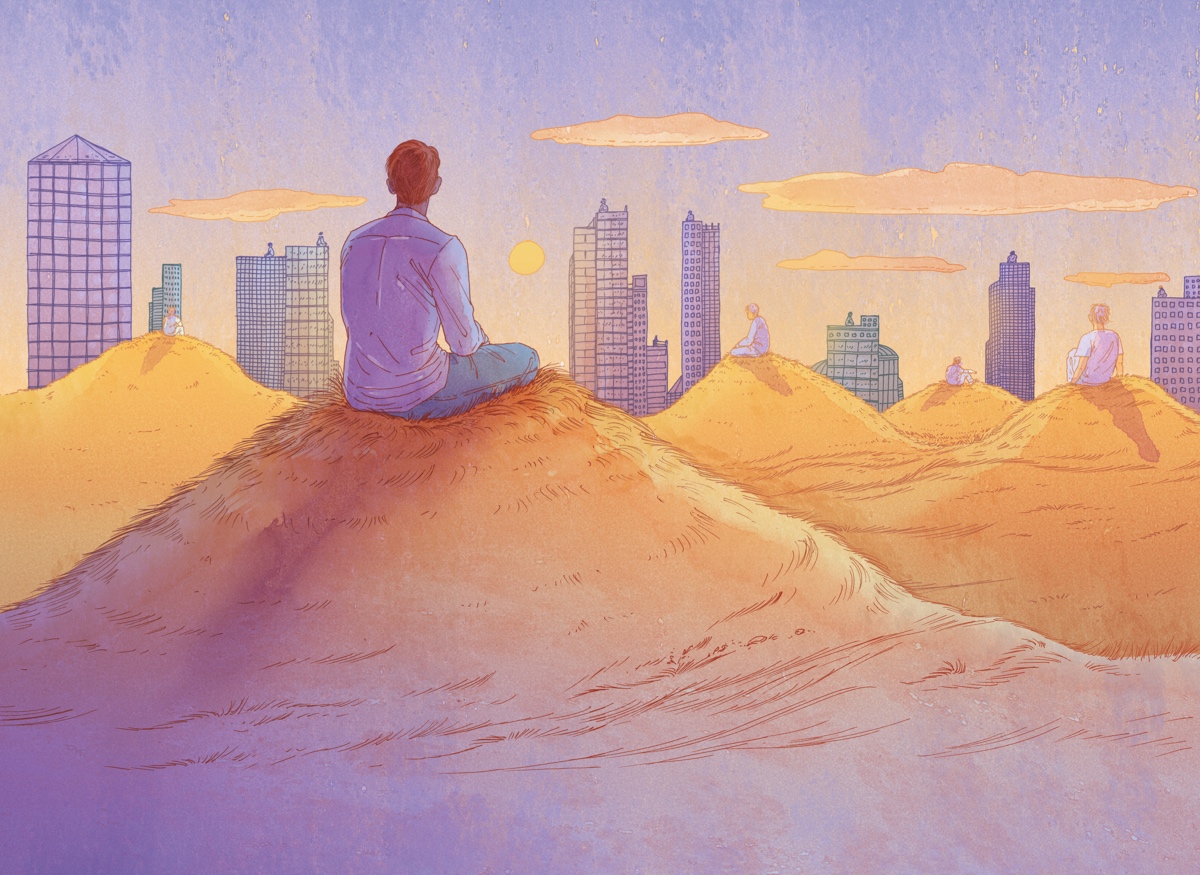Dude, there's studies on this. Y'all can't stand the thought of living alone. It literally kills you physically and mentally. Women, not so much.
Why mates are a kind of medicine.

www.sciencefocus.com
How loneliness is killing men
Why mates are a kind of medicine.
Try 3 issues for £5 when you subscribe to BBC Science Focus Magazine!
Ian Taylor
Published: November 11, 2022 at 5:06 am
Back in 2008, a small but very cute study asked people to
stand at the bottom of a hill, look up and guess how steep it was. Some people were there alone, others accompanied by friends. The hill, on the campus of the University of Virginia, had an incline of 26°. But to the people who were there with friends, it looked a lot less. Compared with those who turned up on their own, they significantly underestimated the gradient. The feel-good lesson? Everything looks easier when there’s a friend by your side.
Yes, mate, the benefits of friendship are profound. Having a strong social circle is associated with a longer life and fewer illnesses. Your pals lower your blood pressure and trigger positive chemicals in your brain. People with a strong social network are less stressed, more resilient and more optimistic.
They’re more likely to be a healthy weight and less likely to suffer cognitive decline. They also enjoy some protection from cancer,
heart disease and depression.
But there’s one group – a big one – that is missing out on these benefits. Men are lonely. Growing numbers of men are standing at the bottom of that hill, alone and overwhelmed, as surveys point to a recession of social connection among those of us with a Y chromosome.
A YouGov poll in 2019 concluded that one in five men have no close friends, twice as many as women. In 2021, the Survey Center on American Life found that since 1995,
the number of American men reporting that they had no close friends jumped from 3 to 15 per cent. In the same research, the number of men saying they had at least six close friends halved from 55 per cent to 27 per cent.
During the past decades a rising trend of living alone can be observed in the population especially in urban areas. Living alone is considered a psychosocial risk factor. We studied the relationship between living alone, cardiovascular risk factors ...

www.ncbi.nlm.nih.gov
Living alone is a risk factor for mortality in men but not women from the general population: a prospective cohort study
Ulla Kandler,
1
Christa Meisinger,1,2
Jens Baumert,1
Hannelore Löwel,1 and the KORA Study Group
Author information Article notes Copyright and License information PMC Disclaimer
Background
During the past decades a rising trend of living alone can be observed in the population especially in urban areas. Living alone is considered a psychosocial risk factor. We studied the relationship between living alone, cardiovascular risk factors and mortality.
Methods
We analysed data from the population-based MONICA/KORA cohort study including 3596 men and 3420 women of at least one of three surveys carried out between 1984 and 1995 in the region of Augsburg, Germany. They were between 45 and 74 years old and were followed-up until 31 December 2002. During follow-up 811 men and 388 women died. Cox proportional hazards analysis was used to examine the association between living alone and mortality.
Results
Altogether 260 men (7%) and 620 women (18%) were living alone at baseline. Men, who lived alone, were less well educated, had fewer children and friends, and they smoked significantly more than other men. Women, living alone, were also significantly more often current smokers and had less children and friends, but they were more often better educated than cohabitating women. The latter group showed a higher proportion of obese and hypertensive women. Men living alone had a twofold risk to die after multivariable adjustment (hazard ratio = 1.96; p < 0.0001; 95% confidence interval 1.56–2.46). This was not the case for women.






